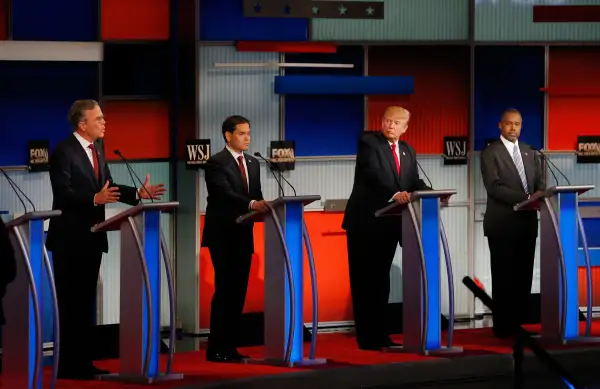Why Aren't the Candidates Debating Retirement Security?

The presidential debates have been long on entertainment but short on ideas in at least one critical area—retirement security, a subject that is top of mind for many Americans.
Boomers are retiring at a rate of 10,000 a day, and Gen X and Millennials have become keenly aware that our pension system is riddled with shortfalls. Lawmakers stripped away a popular Social Security claiming strategy just last month, shaving the cumulative benefit to couples by $9.5 billion. Many of the Republican candidates are on record in support of further actions.
Jeb Bush and Marco Rubio lean towards means testing for Social Security. Ben Carson and Donald Trump would ask affluent seniors to voluntarily opt out. Right. Millions of folks who have paid into the system all their lives are going to say, no thanks, just keep it. Most people recognize that the retirement age will slowly rise and further cuts are in store, which is partly why the broader topic of retirement security is on their minds.
Read Next: What the Republican Presidential Candidates Have to Say About Social Security
Nearly 68% of American workers say the current crop of presidential hopefuls have not been talking enough about ensuring a secure retirement, according to a poll from the Financial Services Roundtable. The poll also shows workers highly value retirement benefits in the workplace, rating them as one of the two most important benefits employers can offer, along with healthcare.
Yet the subject has garnered little airtime in the debates, and the most recent GOP round earlier this week was no exception. There was one brief exchange with Ted Cruz, who offered on Social Security, “For seniors we should make no changes whatsoever. For younger workers we should gradually raise the retirement age, we should have benefits grow more slowly, and we should allow them to keep a portion of their taxes in a personal account.”
There was also a brief mention of healthcare coverage. “We would move the Medicare system from 7% growth down to about a 5% growth,” said John Kasich. “I have a whole series of ways to do that. In Ohio, we reduced Medicaid funding for the poor from 10% to 2.5%, didn't cut one benefit or take anybody off the rolls.”
That’s basically it. No discussion of simply and cheaply converting 401(k) and IRA assets into guaranteed lifetime income—a leading concern in light of disappearing traditional pensions. No mention of how to tackle the thorny but important issue of long-term care costs, or deal with the long-term unemployment of those nearing retirement age with little ability to save.
Some of the candidates have taken a position here and there, and no doubt these issues are not easily dealt with in sound bytes. But they are top of mind with voters of all ages.
Hopefully, this weekend's Democratic debate dig deeper into some of these issues.
Read Next: Why a $15-an-Hour National Minimum Wage Won't Happen Anytime Soon
